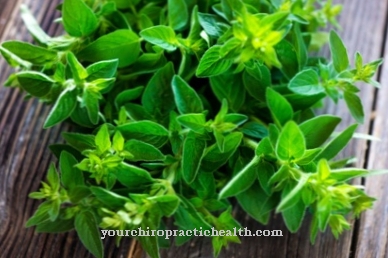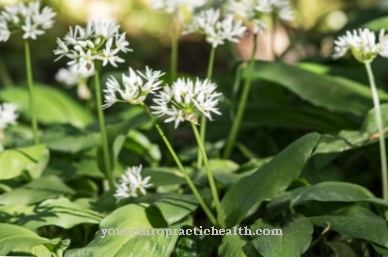One of the most famous citrus fruits is that lemon. It has been cultivated in its cultivated form for around 700 years after Christ. This unique power fruit was first mentioned by the Chinese philosopher Confucius (551 - 479 BC) around 500 years BC.
Occurrence and cultivation of lemons

Presumably, this yellow, well-formed fruit originally came from the eastern part of the Himalayas. Nowadays the lemon mainly grown in the Mediterranean countries, North America and South Africa.
The quick discovery of the healing and preventive effects of lemons is ultimately thanks to the first circumnavigators. The sailors of earlier centuries were often afflicted with scurvy.
Ultimately, this disease is due to a deficiency in the protective vitamin C, as it is increasingly found in citrus fruits - such as lemons.
Application & use
Hardly any other food can be assigned to the "sour" taste as clearly as this lemon. Lemons are also very juicy in terms of their fruit quality and are therefore wonderfully suitable for squeezing. In addition to its use as a fruity food and drink - usually diluted or mixed - the juice or pulp of this citrus fruit gives other dishes and drinks the right, fruity-sour aroma.
In addition, lemons are used as medicinal and preventive agents. The most important active ingredient of the lemon is its vitamin C. Vitamin C, known from the food chemistry point of view as ascorbic acid, belongs to the water-soluble vitamins and is particularly sensitive. Since the citrus fruit also has a high proportion of so-called secondary plant substances, the flavonoids in the pulp in particular protect vitamin C from oxidative processes.
This means that advantageously no reactions with the oxygen from the air can take place. Flavonoids are a subgroup of the polyphenols. These are in turn one of the ten most important groups of the secondary plant substances known to date. So far, extensive research has been carried out in the field of secondary plant substances. Almost 100,000 individual substances are known around the world. All can support natural healing processes in the human body.
In addition to vitamin C and secondary plant substances, the acidity of lemon also has a positive effect on the human body. In the digestive process, it leads to stimulation processes in the gastric mucosa. This stimulates the production of hydrochloric acid and the production of pepsin. Pepsin belongs to the group of protein-splitting enzymes. Not only is digestion in the stomach improved, but proteins, iron and calcium can be better utilized. This increases the vitality of the body enormously. The ingredients in lemon are therefore unlikely to be beneficial to health.
Significance for health, treatment & prevention
The most well-known home remedy for colds, coughs, runny nose, hoarseness and sore throats is the "hot lemon": lemon juice, freshly squeezed, poured on with hot water and enjoyed warm.
This combination is also most effective when one or two spoons of liquid honey per cup are added to the drink. Even if the citrus fruit tastes sour, it is one of the foods that have an alkaline effect on the organism. This means that it prevents the body from becoming too acidic. For example, hyperacidity can trigger headaches and even migraines. In therapy, in addition to its positive effect on the immune system and its general alkaline effect, lemon can also be used to stimulate the appetite, stimulate blood circulation, cleanse the blood and disinfect.
There are a variety of physical ailments that the power fruit can alleviate. In addition to the already mentioned strengthening of the immune system and alleviation of diseases of the respiratory tract, acidosis and headaches, it can also be helpful for oily skin, acne and bad breath. Rheumatic symptoms, joint inflammation, frostbite symptoms, weak connective tissue and varicose veins can be relieved with the lemon.
The citrus fruits also promote cell growth, have a rejuvenating effect, make athletes more efficient and release fats in the metabolism. In this way, lemons support weight loss. Lemon juice is very helpful for cosmetic purposes, for example in the form of hair conditioners. The concentration can be increased with lemon oils. The oils are also very refreshing, activating and cheer up the mood. In summary, lemons are a true all-rounder as a food and medicine.
























.jpg)



